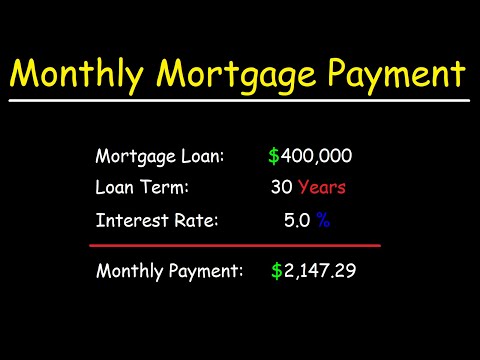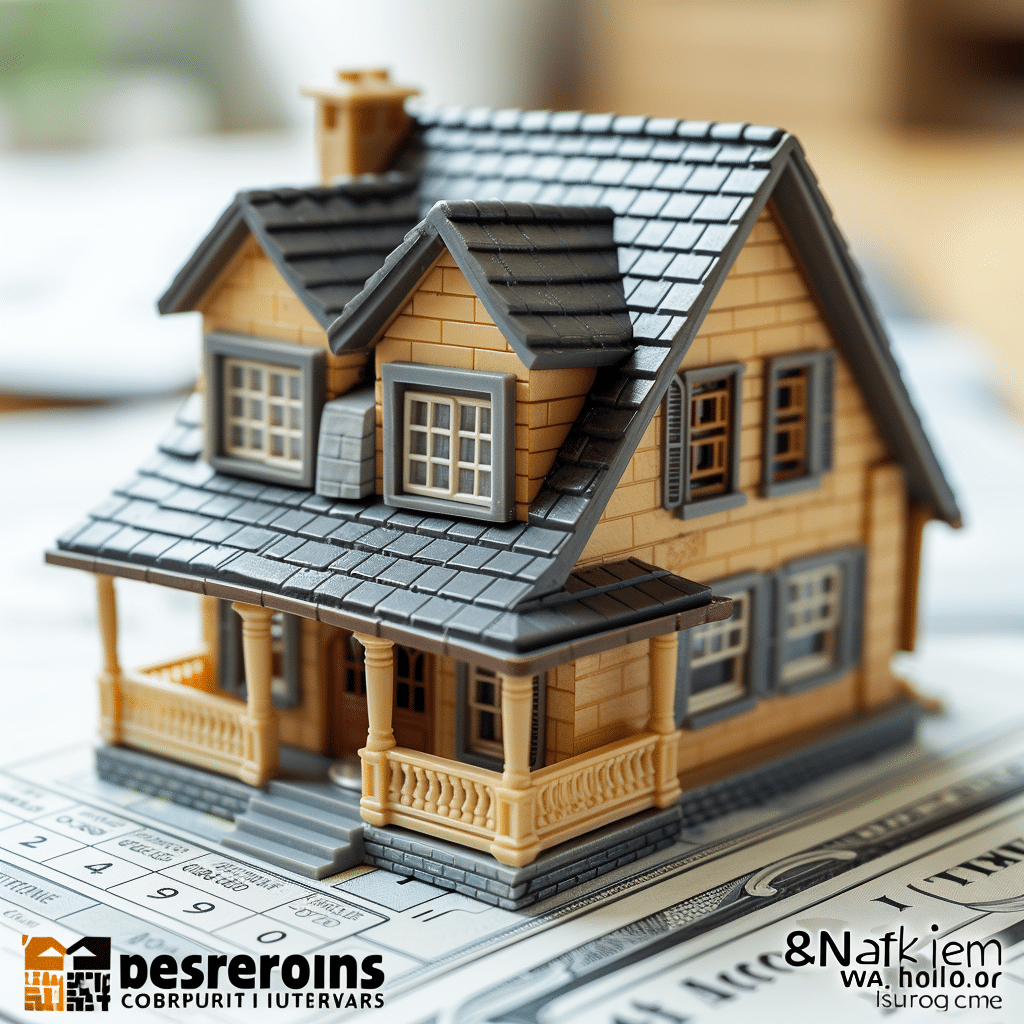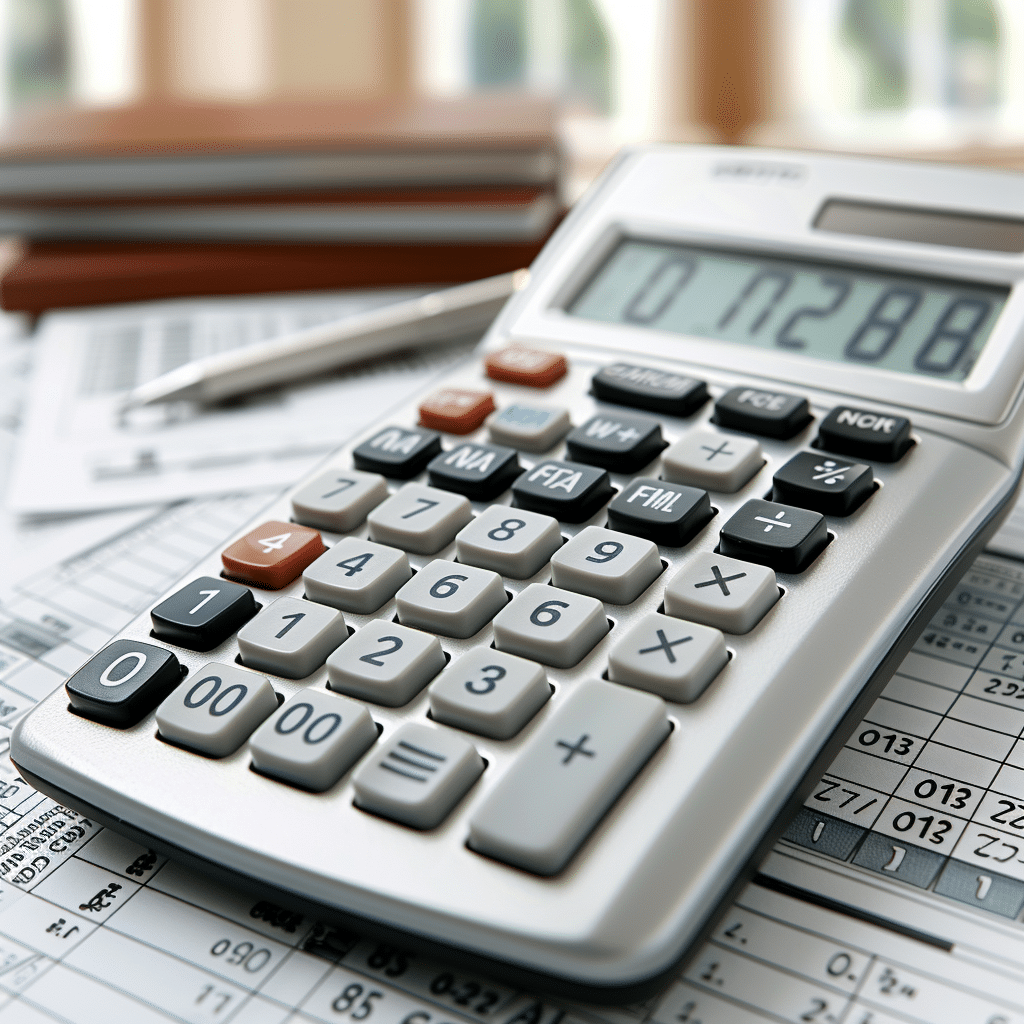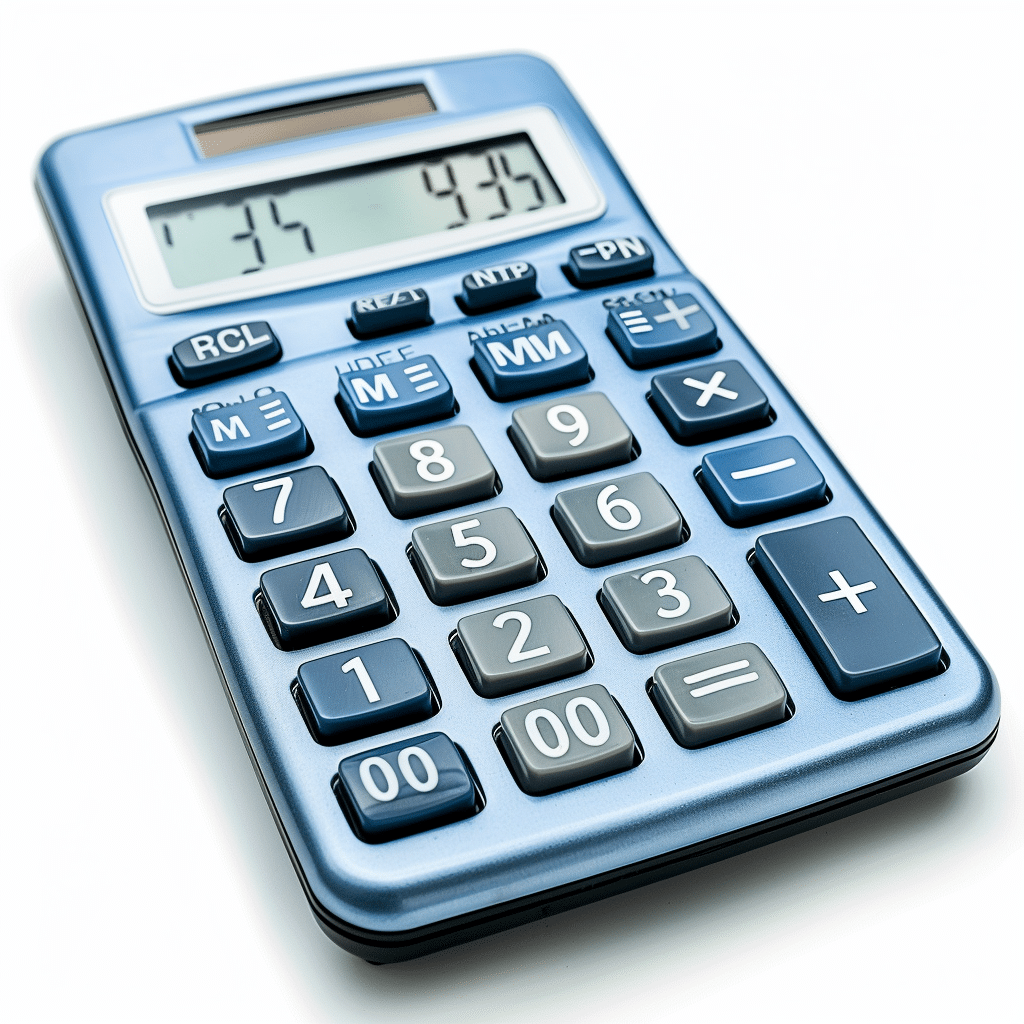Purchasing a home is one of the most significant investments anyone will make. To navigate this complex process, a house buying calculator can be an invaluable tool. It provides potential homeowners with a clear financial picture, aiding in decision-making with confidence.

Why a House Buying Calculator Is Essential
A house buying calculator helps potential buyers assess various financial aspects of purchasing a home, including affordability, mortgage payments, interest rates, taxes, insurance, and more. More than just tools, these calculators are catalysts for informed decision-making.
Here’s why they’re essential:
In short, house buying calculators are like your financial GPS as you navigate the journey to homeownership.

Top 5 House Buying Calculators of 2024
With numerous options available, it can be challenging to determine which calculator suits your needs best. Let’s dive into the top five house buying calculators of 2024, complete with pros, cons, and unique features.
1. Zillow Affordability Calculator
Overview: Zillow’s Affordability Calculator is a user-friendly tool that estimates how much you can afford to spend on a home based on your income, debts, and down payment.
Key Features:
– Easy-to-use interface.
– Integration with Zillow listings.
– Comprehensive breakdown of monthly expenses.
Pros:
– Accurate estimates tailored to individual financial situations.
– Visual breakdown of affordability metrics.
Cons:
– Limited customization options.
Unique Insight: Zillow regularly updates their algorithm to reflect the latest housing market trends, providing a realistic picture of home affordability.
2. Bankrate Mortgage Calculator
Overview: Bankrate’s tool offers robust functionalities that allow you to see how different interest rates and loan terms affect your monthly mortgage payments.
Key Features:
– Options to include taxes, insurance, and HOA fees.
– Detailed amortization schedule.
Pros:
– Highly customizable inputs.
– Clear graphical representations of data.
Cons:
– Interface may be less intuitive for first-time users.
Unique Insight: Bankrate incorporates real-time mortgage rate data, ensuring calculations are up-to-date and relevant.
3. NerdWallet Home Affordability Calculator
Overview: NerdWallet offers a comprehensive tool that calculates how much house you can afford by factoring in your current financial status.
Key Features:
– Personalized affordability estimate.
– Inclusion of utilities and maintenance costs.
Pros:
– Offers additional financial advice based on the calculation.
– User-friendly design with educational resources.
Cons:
– Advertisements can sometimes clutter the interface.
Unique Insight: Nerdwallet uses a sophisticated algorithm that not only estimates affordability but also suggests ways to improve financial stability.
4. Chase Mortgage Calculator
Overview: Chase provides a versatile house buying calculator that helps potential buyers understand their monthly payments and overall loan costs.
Key Features:
– Detailed loan comparison options.
– Scenario analysis for various loan terms.
Pros:
– Includes tools for both basic and advanced users.
– Backed by one of the largest financial institutions in the U.S.
Cons:
– Limited to Chase loan products.
Unique Insight: Chase Mortgage Calculator’s ability to compare multiple loan scenarios side-by-side gives users a clear strategic advantage in financial planning.
5. Redfin Mortgage Calculator
Overview: Redfin offers a straightforward calculator that helps users understand the impact of down payments, loan terms, and interest rates on their monthly mortgage payments.
Key Features:
– Live updating of market conditions.
– Simplified input fields.
Pros:
– Integration with Redfin listings and real-time data.
– User-centric design.
Cons:
– Limited to basic calculation functionalities.
Unique Insight: Redfin ’ s integration of current housing market data provides an accurate reflection of potential payment scenarios, which is particularly useful in fluctuating markets.

| Annual Salary | Affordable Home Price | Down Payment (%) | Down Payment Amount | Mortgage Type | Interest Rate | Monthly Payment | Notes |
| $36,000 | $100,000 – $110,000 | Small or None | Low or None | Varies | Varies | ~$1,000 | Assumes no other debts and minimal/zero down payment. |
| $90,000 | $375,000 – $495,000 | 20% | $75,000 – $99,000 | 15-30 Year Fixed | 6.88% | $1,875 – $2,475 | Range accounts for 25%-33% of salary. |
| $105,864 | $400,000 | 20% | $80,000 | 30-Year Fixed | 6.88% | ~$2,520 | Minimum salary required for a $400,000 home with 20% down payment. |
| $65,000 | $215,000 – $285,000 | Varies | Varies | Varies | Varies | ~$1,400 – $1,900 | Based on 25%-33% of salary for mortgage payments. |
| $120,000 | $400,000 – $480,000 | 20% | $80,000 – $96,000 | 30-Year Fixed | 6.88% | $2,500 – $3,000 | Assumes 20% down payment, eliminating PMI and potentially lower interest rates. |
| $75,000 | $250,000 – $300,000 | 20% | $50,000 – $60,000 | Conventional | < 6.88% | ~$1,600 – $1,925 | Can vary based on interest rates and choice of mortgage type; conventional loans often offer better rates with 20% down payment. |
Key Elements to Consider When Choosing a House Buying Calculator
When selecting a house buying calculator, there are several important factors to consider to ensure it meets your specific needs:
Accuracy and Reliability
Customization Options
Whether you’re looking at taxes, insurance, and HOA fees inclusion or scenario analysis, opt for calculators that accommodate these variables.
– Expenses Inclusion: Choose calculators that allow the inclusion of various costs such as taxes, insurance, and HOA fees.
– Scenario Analysis: Opt for calculators that allow you to test different scenarios to see potential outcomes.
User Experience
In essence, the right house buying calculator should be accurate, customizable, and easy to use.

The Evolving Landscape of House Buying Calculators
The real estate market is continuously evolving, and so are the tools that assist home buyers. With advancements in technology, including artificial intelligence and machine learning, house buying calculators are becoming more sophisticated and personalized.

Making the Most of Your House Buying Calculator
Finally, maximize the utility of your chosen calculator by regularly updating your financial inputs and staying informed on market conditions. Adding professional advice from real estate agents and financial advisors can also bring well-rounded decision-making into play.
Wrapping Up the Best House Buying Calculator Guide
Choosing the right house buying calculator can streamline the home buying process significantly, providing clarity and confidence in your financial decisions. By understanding the various features and benefits of different tools, you can find the calculator that best suits your individual needs and make your dream of homeownership a reality in 2024 and beyond.
Remember, the journey to finding your perfect home is complex, but with the right house buying Calculators and insights, it’s certainly within reach. Be proactive and leverage available tools to make informed decisions on your quest for homeownership.
House Buying Calculator: Fun Trivia and Interesting Facts
Do You Know?
The humble house buying calculator has an interesting past. One fascinating tidbit is that the first online calculator for house loans was practically revolutionary. Thanks to this digital leap, potential homeowners can now swiftly crunch numbers without leaving their sofas. Isn’t it wild to think that tools like the house loan calculator are actually a product of the 20th century? Before that, folks had to manually figure out complex calculations. Can you imagine the time it took?
The Power of Predictions
Ever wondered how a simple tool can predict so much about your future finances? The best house buying calculator isn’t just a snazzy gadget; it’s a powerhouse of algorithms designed to forecast mortgage potentials efficiently. What’s more, tools like the house calculator mortgage are constantly evolving to provide even more granular details. Consider this: The introduction of graphical interfaces in these calculators nearly tripled their usage because of their ease of understanding. Now, everyone from first-time buyers to seasoned investors relies on these invaluable tools.
Beyond Basic Math
It’s more than just numbers and percentages. Did you know that a sophisticated house buying calculator can factor in variables like tax changes and even local economic forecasts? That’s right! These tools can offer a bird’s-eye view, assisting in fine-tuning your investment strategy. The widespread adoption of these calculators has even been credited for stabilizing economic climates in certain regions, as they help people make more informed decisions. The next time you’re using a house loan calculator,( remember you’re not just crunching numbers – you’re tapping into data insights that could influence national economic health!

How much house can I afford if I make $36,000 a year?
On a $36,000 salary, you can comfortably afford a house priced between $100,000 and $110,000 assuming you have no other debts and haven’t saved much for a down payment. Your monthly mortgage payment would be just over $1,000.
How much money do I need to make a year to buy a $400000 house?
To afford a $400,000 house with a 30-year fixed conventional mortgage and a 20 percent down payment, you need to earn at least $105,864 per year due to the high 6.88 percent interest rate.
How much house can I afford if I make $90000 a year?
With an annual income of $90,000, you can allocate between $22,500 and $29,700 annually for housing costs, translating to monthly payments between $1,875 and $2,475, comfortably covering most mortgage payments within that range.
How much money should I have to buy a $300 K house?
For a $300,000 house, you should have a $60,000 down payment. Opting for a conventional loan with this down payment often results in better interest rates, lower monthly payments, and no need for private mortgage insurance (PMI).
Is $40,000 salary enough to buy a house?
A $40,000 salary might make it challenging to buy a house, especially if you have other debts or limited savings for a down payment. However, it depends on the housing market in your area and your overall financial situation.
How much house for $3,500 a month?
At $3,500 a month for housing, you can afford a home with a mortgage balance that aligns with this payment, typically translating to a house price considerably higher, depending on your down payment and other financial factors.
What is the 20% down payment on a $400 000 house?
A 20 percent down payment on a $400,000 house amounts to $80,000.
What is the minimum income for a 300k mortgage?
For a $300,000 mortgage, the minimum income needed generally aligns with the ability to manage monthly payments and living costs, typically requiring an annual income around $75,000 depending on the interest rate and other debts.
How much is a 3.5% down payment on a house?
A 3.5% down payment on a house would total $3,500 per $100,000 of the home’s price. For example, on a $200,000 home, your down payment would be $7,000.
Is 100k a year a good salary?
A $100,000 salary is generally considered a good income and can support a comfortable lifestyle, including affording a fairly substantial mortgage, depending on other financial responsibilities you may have.
Is 80k a good salary?
An $80,000 salary is quite solid and typically sufficient to afford a range of housing options, though the exact affordability will depend on the cost of living and housing market in your area.
What is the 28/36 rule?
The 28/36 rule is a guideline suggesting you spend no more than 28% of your gross monthly income on housing expenses and no more than 36% on total debt, including housing costs and other debts like car loans or credit cards.
What credit score is needed to buy a house?
To buy a house, you’ll typically need a credit score of at least 620 for a conventional loan. Higher scores can get you better interest rates and loan terms.
What credit score is needed for a 300k house?
For a $300,000 house, a credit score of at least 620 is usually required for a conventional loan, but higher scores can make loan approval easier and improve conditions.
What credit score is needed to buy a $400k house?
Buying a $400,000 house usually requires a credit score of at least 620; however, having a higher score significantly helps in securing better loan terms and interest rates.
Can I buy a house with 36k income?
With an income of $36,000, you can afford a house priced around $100,000 to $110,000, assuming no additional debts and minimal savings for a down payment.
Can I buy a house making $35,000 a year?
On a $35,000 annual salary, buying a house is tight but possible if you aim for homes around $100,000 to $110,000, provided you don’t have other significant debts and haven’t saved much for a down payment.
How much house can I afford if I make 53 000 a year?
Making $53,000 a year, you could afford a house priced around $150,000 to $160,000, assuming no other significant debts and having some savings for a down payment.
How much do you have to make a year to afford a 200 000 house?
To afford a $200,000 house, you should earn around $50,000 annually, ensuring you comfortably handle mortgage payments along with other living expenses.



